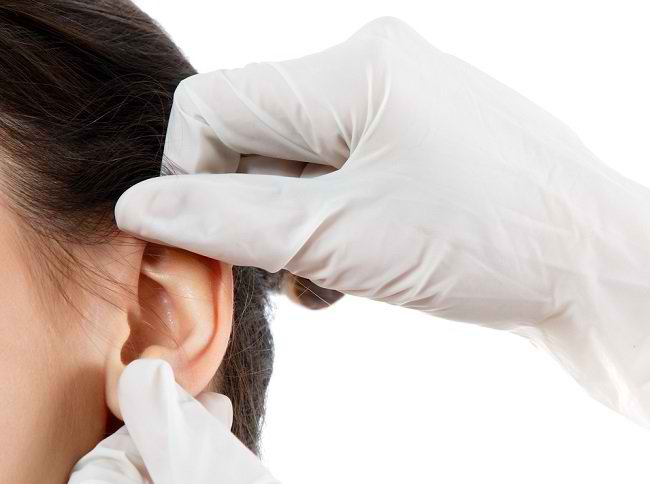Anastrozole is a drug used to treat breast cancer in postmenopausal women. Anastrozole can be given to patients whose condition does not improve after treatment with tamoxifen.

Anastrozole works by lowering estrogen levels in the body by inhibiting the aromatase enzyme. That way, it is hoped that the size of the tumor will shrink and the growth of cancer cells can be inhibited.
Please note, anastrazole should not be used by men, children or women who have not been through menopause.
Trademark anastrozole: Anamidex, Anzonat, Aramidex, ATZ, Bracer, Brecazole
What is Anastrozole
| group | Prescription drugs |
| Category | Antiestrogen |
| Benefit | Overcoming breast cancer in postmenopausal women |
| Consumed by | Mature |
| Anastrozole for pregnant and lactating women | Category X:Studies in experimental animals and humans have demonstrated fetal abnormalities or a risk to the fetus. Drugs in this category should not be used by women who are or may become pregnant. It is not known whether Anastrozole is absorbed into breast milk or not. If you are breastfeeding, do not use this medicine without consulting your doctor first. |
| Drug form | Tablet |
Precautions Before Taking Anastrozole
There are several things you should pay attention to before using anastrozole, namely:
- Tell your doctor about any allergies you have. Anastrozole should not be given to patients who are allergic to this drug.
- Tell your doctor if you haven't gone through menopause. Anastrozole should not be given to patients with these conditions.
- Tell your doctor if you have or have ever had liver disease, coronary heart disease, heart disease, high cholesterol, hypertension, osteoporosis, blood clotting disorders, or low bone density.
- Tell your doctor if you are pregnant, breastfeeding, or planning a pregnancy. Use effective contraception while on treatment with this medicine.
- Tell your doctor if you are taking certain medications, supplements, or herbal products.
- See your doctor right away if you experience an allergic drug reaction, overdose, or serious side effect after using anastrozole.
Anastrozole Dosage and Directions
The dose of anastrozole as an adjunct therapy for treating breast cancer in postmenopausal women is 1 mg, once a day. The duration of treatment can be done up to 5 years
The doctor will adjust the dose given to the patient's age, condition, and body response to treatment.
Method Taking Anastrozole Correctly
Always follow the doctor's instructions and read the information on the medicine package before taking anastrozole
Anastrozole can be taken before or after meals. Take anastrozole at the same time each day. Swallow the anastrozole tablet whole with the help of a glass of water. Do not crush, split, or chew the medicine as this may affect its effectiveness.
Take anastrozole regularly. Do not start or stop taking the drug or increase or decrease the dose of the drug without consulting your doctor first.
If you forget to take anastrozole tablets, take them as soon as you remember if the distance to the next consumption schedule is not too close. If it is close, ignore it and do not double the dose.
Anastrozole can cause reduced bone density. Therefore, you will be asked to have a bone density test before and during treatment with this medicine.
Store anastrozole in a dry place, away from direct sunlight and at room temperature. Keep this medicine out of reach of children.
Anastrozole Interactions with Other Drugs
Some of the interaction effects that can occur if anastrozole is used together with other drugs, include:
- Increased risk of forming clots and blood clots that can clog blood vessels when used with thalidomide
- Decreased effect of anastrozole when used concomitantly with estrogen or estrogen-containing drugs
- Decreased blood levels of anastrozole when used concurrently with tamoxifen
Anastrozole Side Effects and Dangers
There are several side effects that can appear after taking anastrozole, including:
- Hot flashes
- Insomnia
- Headache
- Dizzy
- Nausea or vomiting
- Stomach ache
- Constipation or diarrhea
- No appetite
- Weight gain
- Weak or tired
- Cough
- Sore throat
Check with your doctor if these side effects don't improve or get worse. See your doctor right away if you have an allergic drug reaction or any of the following serious side effects:
- Bone pain
- Bones break or crack easily
- Joint pain or stiffness in the joints
- Stiff or sore muscles
- Depression
- Mood swings
- Numbness or tingling
- Short breath
- Excessive vaginal discharge, painful vaginal discharge, or vaginal itching
- Swelling in the hands, feet, or ankles
- Chest pain or weakness on one side of the body
- Vision changes, such as blurry vision
- Severe nausea or vomiting, severe stomach pain, jaundice









